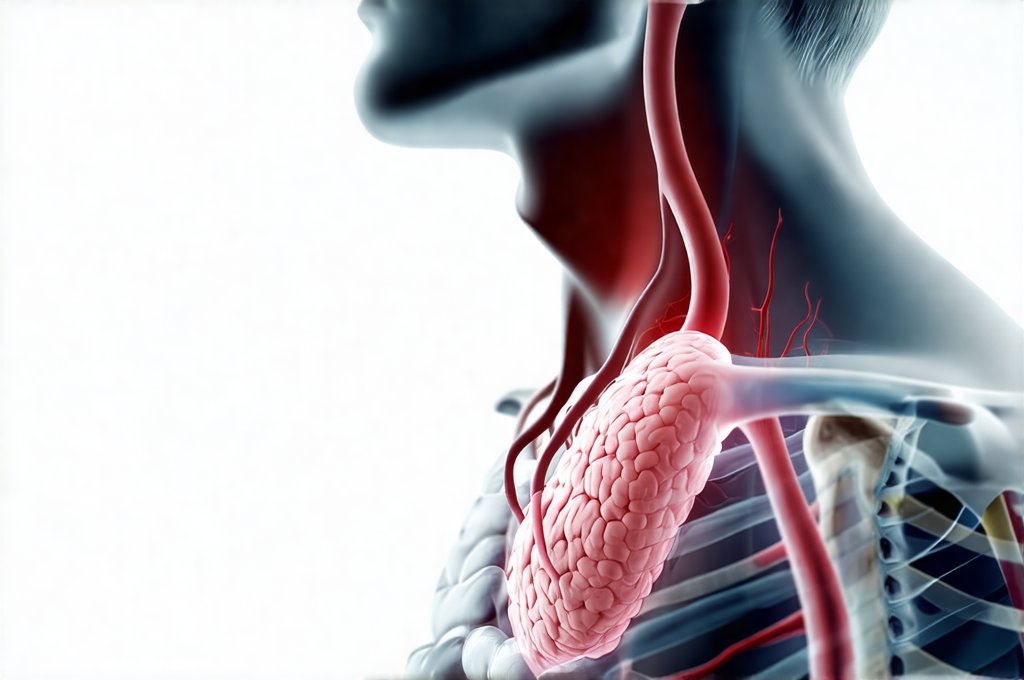Acid reflux, also known as heartburn, is a common digestive issue experienced by many people. It occurs when stomach acid flows back up into the esophagus, causing a burning sensation in the chest. While dietary factors and lifestyle choices are frequently cited as primary causes, the intricate relationship between hormonal imbalances and this condition is often overlooked. Many individuals don’t realize that fluctuations in hormone levels can significantly impact digestive function and exacerbate symptoms of acid reflux. Understanding this connection is crucial for effective management and long-term relief.
The digestive system, like many bodily functions, is profoundly influenced by hormones. These chemical messengers regulate everything from the production of stomach acid to the motility of the gut. When hormonal balance is disrupted—whether due to natural life stages, stress, or underlying medical conditions—the entire digestive process can become compromised. This disruption isn’t always a direct cause-and-effect situation; instead, it often creates an environment where acid reflux is more likely to occur and symptoms are amplified. Recognizing these connections empowers individuals to address the root causes of their discomfort and work towards holistic wellness. You might also find useful information about hormonal imbalance in relation to other digestive issues.
The Role of Estrogen & Progesterone in Acid Reflux
Estrogen and progesterone, primary hormones in women, play a significant role in gastrointestinal function. Their levels fluctuate throughout the menstrual cycle, during pregnancy, and especially during menopause. These fluctuations directly impact esophageal sphincter tone—the muscle that prevents stomach acid from flowing back up into the esophagus—and gastric motility, which is how quickly food moves through the digestive system. Lower estrogen levels, as seen during perimenopause and menopause, can lead to a weakened lower esophageal sphincter (LES), increasing the risk of reflux. Progesterone, while generally promoting LES tone, can also have relaxing effects on the gastrointestinal tract, contributing to slower digestion and potentially more frequent reflux episodes in some individuals.
The impact isn’t limited to menopause. During pregnancy, dramatic hormonal shifts—particularly increased progesterone levels—can relax the LES, making pregnant women more susceptible to heartburn. This is a very common experience during pregnancy and typically resolves after childbirth as hormone levels return to normal. Moreover, the growing uterus can also put physical pressure on the stomach, further contributing to reflux. It’s important to note that hormonal fluctuations aren’t the sole determinant of acid reflux; factors like weight gain, diet, and stress all play a role, but hormones often act as significant exacerbating elements. If you suspect food sensitivity is playing a role, it’s worth exploring further.
Understanding these hormonal influences allows for more targeted approaches to managing acid reflux in women experiencing these life stages. Lifestyle modifications, dietary adjustments, and, when necessary, medical interventions can be tailored to address the specific hormonal changes occurring at each stage of life. Proactive management is key to minimizing discomfort and improving quality of life. Considering how to adjust meals around these fluctuations can be a helpful strategy.
Thyroid Hormones & Digestive Health
The thyroid gland produces hormones crucial for regulating metabolism, which directly impacts digestive processes. Both hypothyroidism (underactive thyroid) and hyperthyroidism (overactive thyroid) can contribute to acid reflux, albeit through different mechanisms. Hypothyroidism slows down the entire digestive system – including gastric emptying – leading to food remaining in the stomach longer and increasing the risk of acid backup. Additionally, a sluggish metabolism can weaken the LES muscle, further exacerbating reflux symptoms. Conversely, hyperthyroidism can accelerate digestion, but it often does so unevenly, potentially causing rapid transit time and esophageal irritation.
The connection between thyroid function and gut health extends beyond just acid reflux. Thyroid hormones influence gut motility, intestinal permeability (“leaky gut”), and even the composition of the gut microbiome. An imbalanced gut microbiome has been linked to increased inflammation and digestive distress, creating a vicious cycle with acid reflux symptoms. Therefore, addressing underlying thyroid issues is often vital for long-term management of chronic acid reflux. Regular thyroid checkups are recommended, particularly for individuals experiencing persistent digestive problems or other signs of thyroid dysfunction such as fatigue, weight changes, or sensitivity to temperature. It’s also worth considering if cold weather might be exacerbating your symptoms.
Cortisol & The Gut-Stress Connection
Cortisol, often dubbed the “stress hormone,” is released by the adrenal glands in response to perceived stress. While essential for survival in acute situations, chronically elevated cortisol levels can wreak havoc on the digestive system and worsen acid reflux. Stress triggers a cascade of physiological changes, including increased stomach acid production and altered gut motility. This combination significantly increases the likelihood of acid flowing back into the esophagus. Furthermore, chronic stress often leads to poor lifestyle choices—such as unhealthy eating habits or skipping meals—which can further exacerbate reflux symptoms.
- Stress management techniques are crucial for mitigating cortisol’s impact on digestion. These include mindfulness meditation, yoga, deep breathing exercises, and regular physical activity.
- Prioritizing sleep is also essential, as lack of sleep increases cortisol levels and disrupts digestive function.
- Identifying and addressing the root causes of stress—whether it’s work-related pressure or personal challenges—is a vital step towards long-term gut health.
Insulin Resistance & Acid Reflux
Insulin resistance, a hallmark of prediabetes and type 2 diabetes, can contribute to acid reflux through several pathways. High insulin levels are associated with increased inflammation throughout the body, including in the digestive tract. Chronic inflammation damages the esophageal lining and weakens the LES muscle, increasing susceptibility to reflux. Additionally, insulin resistance often leads to gastroparesis – delayed stomach emptying – which prolongs the time food remains in the stomach and increases acid production.
- Maintaining a stable blood sugar level through dietary changes—such as reducing processed foods and refined carbohydrates—can help improve insulin sensitivity and reduce inflammation.
- Regular exercise is also crucial for improving insulin sensitivity and overall metabolic health.
- Addressing underlying insulin resistance can not only alleviate acid reflux symptoms but also prevent the progression of more serious health conditions. Understanding low acid diets could also be beneficial in managing these issues.
Adrenal Fatigue & Digestive Dysfunction
Adrenal fatigue, though a controversial term in mainstream medicine, describes a state of chronic adrenal gland dysfunction often resulting from prolonged stress. While not universally recognized as a medical diagnosis, many individuals experience symptoms consistent with adrenal exhaustion, including persistent digestive problems like acid reflux. When the adrenal glands are overworked, their ability to regulate cortisol and other hormones diminishes, leading to imbalances that disrupt digestion.
- Supporting adrenal health involves prioritizing rest, reducing stressors, and adopting a nutrient-rich diet.
- Adaptogenic herbs – such as ashwagandha and rhodiola – may help support the adrenal glands’ natural function, but should be used under the guidance of a qualified healthcare professional.
- Addressing chronic stress and making lifestyle adjustments are essential for restoring adrenal balance and alleviating digestive symptoms.
It is important to remember that these hormonal connections are complex and individualized. Managing acid reflux often requires a holistic approach that addresses both the immediate symptoms and the underlying contributing factors, including hormonal imbalances. Consulting with a healthcare professional is crucial for accurate diagnosis, personalized treatment plans, and ongoing support. If you notice worsening symptoms during certain times, it may be due to hormonal changes.


















